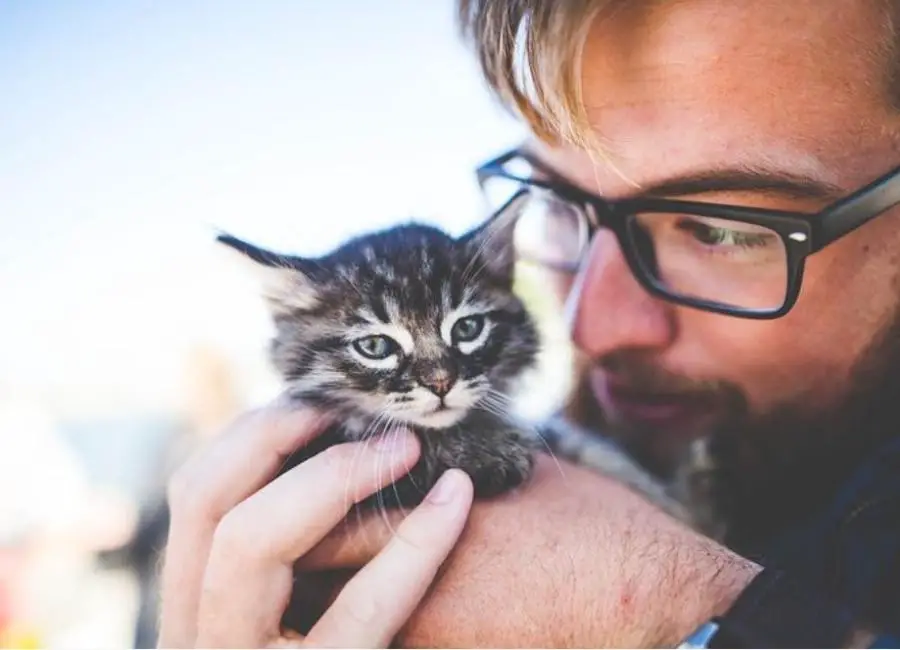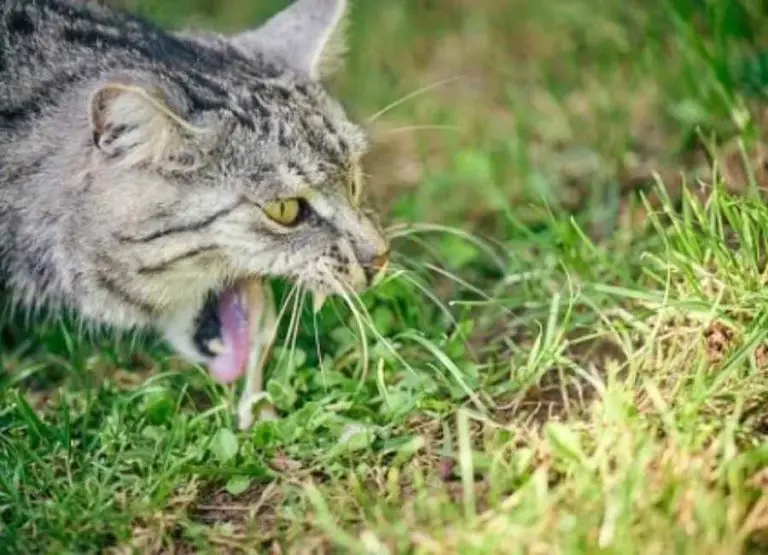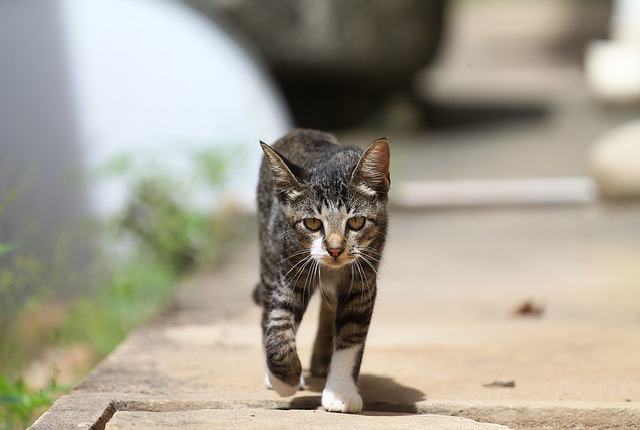22 Simple Ways To Care For A Kitten You Just Got

This post is aimed at discussing the most common and simple ways to care for a kitten for new cat parents.
Kittens are playful, energetic, and full of life. A kitten is also very fragile and needs special care in order to thrive as a healthy adult cat.
It’s important that you take good care of your kitten from the first day it arrives in your home so that it can grow up into an adult cat with the best possible health.
This list is not in order so make sure you read through it!
Here are some tips for caring for a new kitten:
Get Ready For The First Night
The first night of bringing your kitten home is an important one.
It’s the time when you introduce your kitten to his new surroundings and let him get used to having people around, so make sure you’re ready for this momentous occasion.
The first thing you should do is get a litter box or box of newspapers so that he has somewhere safe where he can go potty if he needs to use it.
You should also ensure that there are enough toys available so that they don’t feel lonely while they wait for dinner time (or whenever).
Make sure there are plenty of good food options available so that your kitten won’t have any hunger issues during their stay here at home!
Also, make sure there is plenty of water available in case things get too hot out side or if someone accidentally spills something on themselves while cleaning up after dinner again…
Create A Comfortable Space
Create a comfortable space for the kitten. The best way to do this is by creating a quiet area in your home where they can go when they are not playing or sleeping.
If you have children, this is especially important because it will help keep them from bothering or bothering your cat while it’s asleep or trying to play with them.
Make sure that there’s enough room for your kitten to move around comfortably and explore its surroundings without being crowded by other animals (especially dogs).
Cats need at least six square feet per cat; if there isn’t enough room available in one room, consider moving it into another part of the house until you’re ready for another animal addition!
Prepare For Potty Training
You can start potty training your kitten as soon as you bring him home.
However, he is a bit young for that right now and will need some time to get used to the idea of needing a bathroom somewhere other than on your floor.
The best way to prepare for potty training is by placing his litter box in an area of your house where he won’t be disturbed or bothered by noise or other pets that may be around.
If possible, try setting up some type of containment systems such as a cat carrier or baby playpen so that when he needs relief from outside distractions it’s easy enough for him just step inside instead.
Another option would be having someone else hold onto one side while you hold onto another until both sides are secure enough against each other without falling over.
This way if either one falls over it won’t matter since there would still be one more person holding onto both sides together!
Read more: How Do You Discipline a Kitten: 11 Right & Wrong Ways.
Keep your kitten’s ear clean regularly
Keeping your kitten’s ears clean is important for their health.
Regularly cleaning their ears will prevent infections and help keep their hearing sharp.
Here are some tips for cleaning your kitten’s ears:
- Start by wetting your kitten’s ear with a gentle stream of water.
- Gently clean the outer ear with a cotton ball or soft cloth.
- If your kitten has a lot of ear wax, gently remove it with a q-tip.
- Repeat the process of wetting the ear, cleaning it, and removing wax if necessary.
- If your kitten has a lot of ear mites, use a prescription ear cleaner prescribed by your veterinarian
Give the kitten Love And Attention
Giving your kitten love and attention is one of the most important things you can do for it.
A kitten needs to be kept in a safe environment, so make sure you have the correct types of litter boxes and toys available to keep them stimulated.
You should also ensure that they are fed regularly and given enough water each day.
If they don’t eat enough food or drink enough water then they may become sick or even die!
Give your kitten lots of love every day by playing with it every day, giving it attention when necessary (such as when sitting down in its favorite spot), and making sure that it gets plenty of sleep at night throughout its lifespan.
Keep your kitten paws clean regularly
Kittens have a lot of energy and playfulness. They may be cute, but they can also be very litter-dirty.
Make sure to keep your kitten’s paws clean regularly to avoid accidents and possible infections.
Follow these simple tips:
-Wash your kitten’s paws with cool water and mild soap every day.
-Rinse well and dry off.
-Apply a pet-safe paw lubricant if needed.
Don’t Leave Your Kitten Stranded
If you are going to be gone for more than a few hours, leave your kitten with a trusted friend or family member who will take care of her.
If you can’t find such an individual, consider taking her to a kennel or pet resort until you return.
Read more: 11 Fun Ways Cats Show Affection To Their Owners.
Introduce New Things Slowly
Introduce new things slowly. Don’t overwhelm the kitten, and avoid introducing it to cats or dogs, children, or a new home all at once.
Instead, introduce each new thing separately so that your kitten can get used to them on its own timetable. For instance:
- If you want to introduce an adult cat into your home, wait until after they’ve been fed before bringing them out of their carrier together. The last thing either of you needs right now is for one of these two animals’ food bowls to tip over!
- If you want a dog as well as a cat in the house with your kitten (which is perfectly fine), try letting him/her out of his/her carrier first so he/she has some time alone before meeting his/her new buddy in person later today…
Provide The Correct Diet for kittens
Kittens need a special diet that is tailored to their age and activity level. As they grow older, the amount of food you feed them will change.
You should keep in mind that kittens are carnivores so it is important to provide them with plenty of raw meaty bones and fresh fruits and veggies like potatoes or carrots.
They can also be given cooked chicken breast or turkey meal as well as canned cat food at times when you know your kitten is going outside for playtime or other activities like exploring outdoors without supervision from you (which may include digging holes).
How often do kitties eat? Kittens usually eat 3-4 times per day unless they’re being fed by themselves every time they wake up then this will be reduced even further than twice daily
Don’t Ignore Vaccinations And Deworming Treatments
If you’re going to have a kitten, it’s important that you know what vaccinations and deworming treatments are needed.
Vaccinations are required by law in most states, but there are exceptions—for example if an older cat has had all of his or her shots before being adopted into a home with younger cats.
It’s also recommended that older cats receive yearly booster shots as they age; this can help prevent diseases from developing in the first place.
The most common type of vaccine is the rabies vaccine (also known as the “Rabies Immune Titer Test”).
This special test measures how much antibody your pet’s body has against the rabies virus; once tested positive (or negative), it will give owners guidance on when their pets should be vaccinated again.
Deworming treatments destroy intestinal parasites called roundworms and hookworms that live within kittens’ intestines; these parasites can cause serious health problems later down the line if left untreated for too long!
Watch Out For Litter Box Problems
Litter boxes are one of the most important things to keep clean in your home, so make sure you do it regularly and thoroughly.
If you can’t do this yourself, ask a friend or family member who does not have cats for help with cleaning out the box every day or two (or even if there are just one or two boxes).
Call Your Vet If You Notice Anything Unusual
If you notice any of the following symptoms, call your vet immediately:
- Loss of appetite.
- Vomiting.
- Diarrhea or constipation, especially if it’s bloody.
- Fever (over 101° F / 38° C).
Keep your kitten indoors
Keep your kitten safe from harm. In addition to keeping your kitten indoors, it’s important to keep them out of reach of dangerous things such as chemicals and toxic plants.
Your cat can easily escape their enclosure if they’re curious or hungry enough, so keep them on short leashes and supervised at all times.
Avoid any contact with other cats or dogs—even if they seem friendly! While it may seem like a great idea at first (or maybe even after), you’ll want to avoid introducing new animals into the household immediately because there could be health risks involved for yours (and theirs).
If you do decide that this is something worth doing sooner rather than later.
Make sure both parties are spayed/neutered beforehand so as not to bring any unwanted pregnancies into existence too soon after meeting each other–this will prevent any potential issues down the road!
Spayed or neutered your kitten early
When your kitten is spayed or neutered, it’s important to keep in mind the health benefits of early spaying or neutering.
The earlier your kitten is neutered or spayed, the less likely it is to develop certain health problems, including:
-Infections in the urinary tract ( UTIs )
-Urinary tract cancers
-Testicular cancer
-Anxiety
-Obesity
-Lounging on the furniture all-day
-Bad breath
There are also many behavioral benefits to spaying or neutering your kitten.
Keep the kitten away from dangerous things
Kittens are curious, and they can easily be tempted to explore their surroundings by touching or smelling things that are not safe for them to touch or eat.
This includes poisonous plants and toxic substances like household cleaners and soaps, which can cause serious health problems if ingested.
Keep the kitten away from electrical cords and appliances.
Electrical cords may look harmless but could cause burns or shock when touched by a cat’s paws, so keep them out of reach of your pet at all times!
Never leave your pet alone in a room with food or drink containers; even if you think you’ve locked up all of those kitchen items properly (and even if they aren’t visible).
There’s always the chance that something might get knocked over during cleaning time—and then where will your kitty be?
The same goes if you have any food leftovers stored somewhere: make sure no one else gets near them before putting away what remains!
Feed them kitten food until the vet says otherwise
Kitten food is different from adult cat food. You can start feeding the kitten as soon as you get the kitten home, but it’s important to make sure that they’re getting enough nutrients and calories through the first few weeks of life.
Kitten food is more nutritious and has more protein than adult cat food; this makes sense because kittens need those nutrients to grow properly!
Kitten kibble also tends to have higher calories than adult kibble does—so if your cat seems overweight after switching over from its old diet.
Try switching back for a couple of weeks before deciding on an alternative strategy (if needed).
Socialize the kitten as early as possible
Socializing your kitten early on is one of the best ways to help them adapt to new environments, people, and other pets.
Socialization also helps kittens become less fearful or aggressive, as well as more confident.
Provide scratch post and cat tree for your kitten
Provide a scratch post and cat tree for your kitten to prevent them from scratching your stuff.
Make sure that the kitten isn’t scratching the furniture or other objects.
A scratching post will help prevent this from happening, as it is designed to be a safe place for your kitty to sharpen his claws when he needs them most.
You can also use a cat tree as an extra way for your kitten to climb and play around with toys, which helps keep him in better health overall!
Provide clean drinking water for your kitten
Clean, fresh water is an important part of kitten care. A kitten’s skin is very delicate and can easily get irritated by dirty water.
Even if you have a cat, the chances are that your household water will contain some dirt and debris.
If your kitten does not have access to filtered or bottled water, then make sure that the dish is cleaned thoroughly each day and refilled with fresh clean water daily (or more often if necessary).
The best way to do this is by using a siphon bottle or dropper until it gets so full that it spills over onto the countertop instead of dribbling out into a bowl or cup underneath it.
This way there will be no chance for bacteria growth inside any container used in their feeding process!
Stick with toys for cats
Toys for cats should be soft and safe for kittens to play with.
This means that your cat’s toys should not be made of fabric, rope, or string.
If you have a hard toy in the house, such as a tennis ball or squeaky toy, it is recommended that you remove it from reach until your kitten is able to play with it without fear of being injured (or even killed).
It also helps if the toys are interactive: some cats get bored easily when their owners leave them alone for too long; others need constant stimulation to keep them entertained and happy!
Brush your kitten regularly
Kittens love to be brushed. It is one of the best ways to keep them clean and healthy. You can use a soft brush, or a cloth if you are using a hard brush.
Make sure to brush the top of their heads, their noses, their eyes, and their cheeks. If they have a fur coat, brush the coat too.
Bath your kitten when necessary
Kittens need to be bathed as often as their specific needs dictate, but a good rule of thumb is to bathe them at least once a week.
Bathing a kitten can be done in a sink or tub, with just a small amount of warm water.
You’ll need a small, soft towel, some shampoo, and a gentle scrub brush.
- Wet the kitten down with cool water.
- Squeeze the excess water out of the kitten, and then blot the kitten dry.
- Lather the kitten up with shampoo, using a gentle scrub brush.
- Rinse the kitten off with clean warm water.
- Make sure you properly dry your kitten.
Read more: When Do Cats Stop Growing: Growth Stages Explained.
Conclusion
After reading these tips, you should have a good idea of what to do with your new kitten.
The most important thing is to remember that kittens are very vulnerable and need extra care and attention.
If you follow all the tips above, then you will be on your way to successfully care for your kitten!






